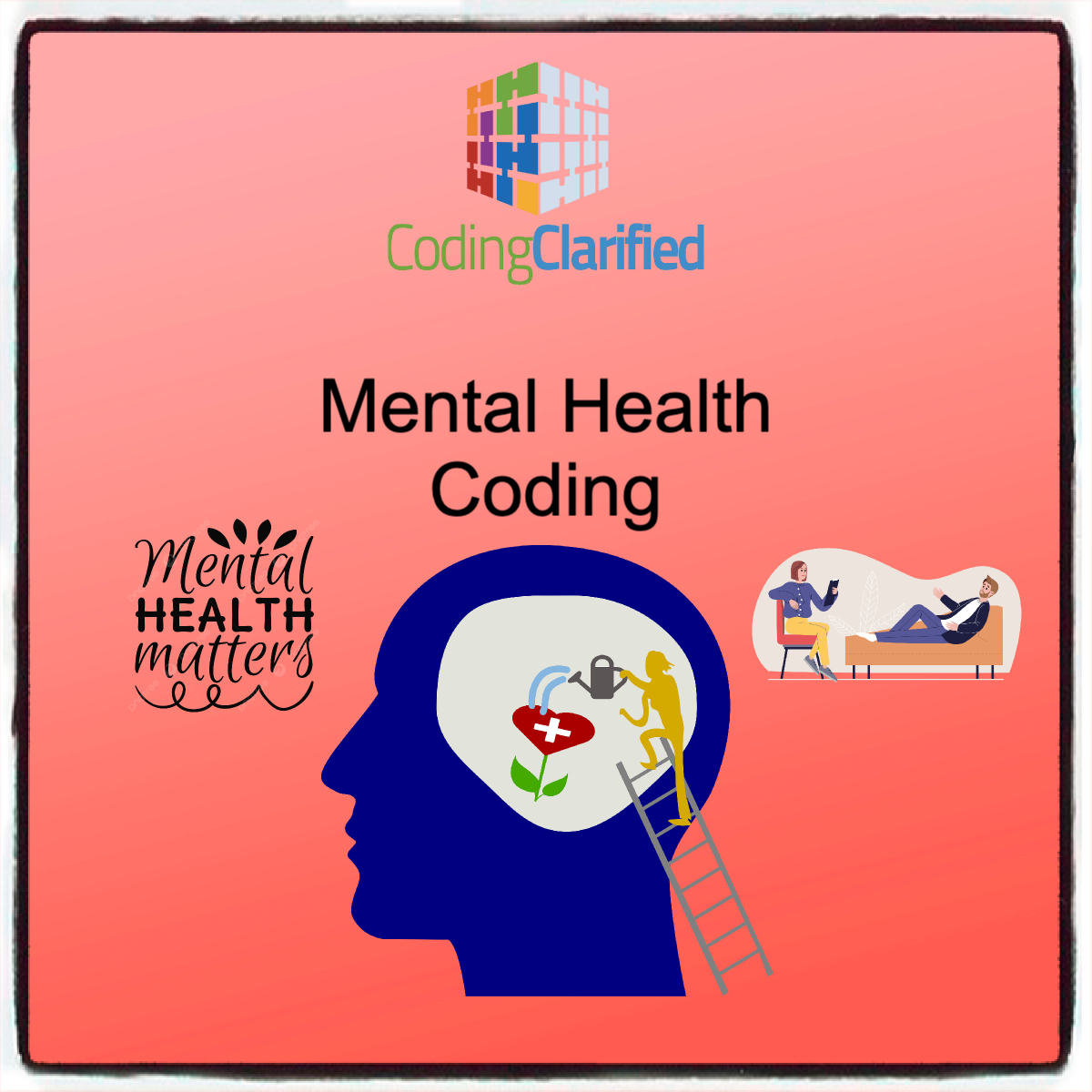Medical coding for mental health services plays a crucial role in ensuring that providers are reimbursed for their work while maintaining compliance with regulations. Accurate coding is essential not only for financial viability but also for improving patient care. This article provides an overview of the key guidelines for coding and billing mental health services.
Understanding Mental Health Coding
Mental health coding primarily involves the use of the International Classification of Diseases (ICD) and Current Procedural Terminology (CPT) codes.
ICD Codes
ICD codes are used to classify mental health disorders and conditions. Key categories include:
- F00-F99: Mental, Behavioral, and Neurodevelopmental disorders
- F01-F09: Organic, including symptomatic, mental disorders
- F10-F19: Mental and behavioral disorders due to psychoactive substance use
- F20-F29: Schizophrenia, schizotypal, and delusional disorders
- F30-F39: Mood disorders
- F40-F48: Anxiety, dissociative, stress-related, and somatoform disorders
CPT Codes
CPT codes represent the services provided. Commonly used CPT codes in mental health include:
- 90791: Psychiatric diagnostic evaluation
- 90792: Psychiatric diagnostic evaluation with medical services
- 90832: Psychotherapy, 30 minutes
- 90834: Psychotherapy, 45 minutes
- 90837: Psychotherapy, 60 minutes
- 96130-96133: Psychological testing and assessment services
Key Guidelines for Coding and Billing
1. Documentation
Proper documentation is critical. It should include:
- Patient demographics
- Detailed clinical notes
- Treatment plans and goals
- Progress notes
- Consent forms
- Any assessments conducted
2. Use of Specific Codes
Always use the most specific codes available. For example, instead of coding a general anxiety disorder, specify the type of anxiety disorder (e.g., generalized anxiety disorder, panic disorder).
3. Compliance with Payer Guidelines
Different payers may have unique requirements for coding and billing. Always check the specific guidelines of Medicare, Medicaid, and private insurers to ensure compliance.
4. Modifiers
Use appropriate modifiers when necessary. For example, if a service is performed on the same day as another service, modifiers such as 25 (significant, separately identifiable evaluation and management service) may be required. https://codingclarified.com/cpt-medical-modifiers/
5. Co-occurring Disorders
When coding for patients with co-occurring disorders, document all relevant diagnoses. The primary diagnosis should reflect the focus of treatment, while secondary diagnoses should capture additional conditions.
6. Telehealth Considerations
With the rise of telehealth, it’s essential to understand how to code for virtual visits. Many CPT codes can be used for telehealth, but it’s vital to confirm that the payer recognizes these services. https://codingclarified.com/telehealth/
7. Ongoing Training
Stay updated with changes in coding guidelines, as they can evolve. Regular training for coding staff and clinicians can ensure everyone is aware of best practices. https://www.aapc.com/training-and-events/continuing-education/behavioral-health-coding-training
Common Challenges in Mental Health Coding
- Complexity of Cases: Mental health diagnoses can often be complex, making coding more challenging.
- Evolving Regulations: The coding landscape changes frequently, requiring continuous education and adaptation.
- Reimbursement Issues: Denials can occur due to improper coding, lack of documentation, or failure to meet payer-specific requirements.
Accurate coding and billing for mental health services is essential for ensuring providers are compensated fairly while facilitating quality patient care. By adhering to the guidelines outlined above, mental health professionals can navigate the complexities of coding with confidence, ultimately leading to better outcomes for both patients and providers. Regular training, attention to detail, and a commitment to compliance are vital components of a successful coding and billing process in mental health care.

